The destinations that have scrapped all Covid travel restrictions
More than 40 destinations worldwide have ended all Covid-related travel rules
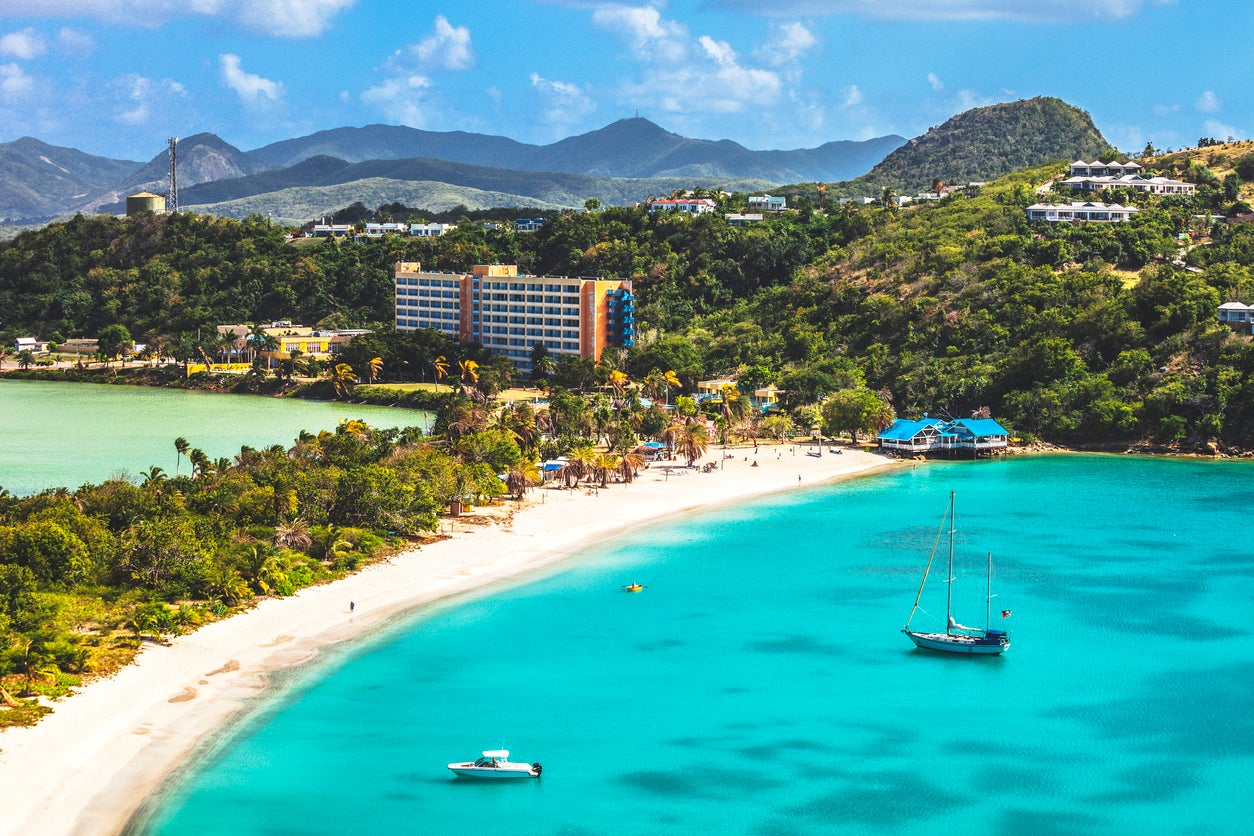
On 26 August, the Caribbean island of Antigua emoved all of its remaining Covid restrictions, including the requirement to show proof of vaccination or a negative test result at the border.
Now international visitors may visit this winter sun spot with the usual, pre-pandemic passport and visa rules (make sure your passport is valid for six months from the date you arrive).
Other nations to recently end Covid rules include the Caribbean islands of St Kitts and Nevis, and the British Overseas Territory St Helena, which previously demanded seven days’ quarantine from arrivals, as well as Malaysia and France.
Now most of the UK’s favourite holiday destinations are friction-free to visit, with the notable exception of Spain, which still requires proof of vaccination, recovery or a negative test result from anyone aged 12 and over.
But if you’re looking for the simplest and least stressful holiday out there, these destinations are your best bet.
All of these countries have now removed both entry requirements such as tests and proof of vaccination, and all or most of their rules on the ground (with some still requiring or recommending masks in certain spaces, such as on public transport).
Ireland
The UK’s emerald neighbour scrapped its remaining Covid-related rules for international visitors in early March, including eliminating its passenger locator form. Now travellers to the country, regardless of vaccination status, will have no pandemic-related admin to contend with before departure or on arrival. The Irish government announced: “From Sunday 6 March 2022, travellers to Ireland are not required to show proof of vaccination, proof of recovery or a negative PCR test result upon arrival. There are no post-arrival testing or quarantine requirements for travellers to Ireland.”
Denmark
This Scandi city-break favourite dropped the majority of its Covid rules back in February, but in late March eased restrictions even for unvaccinated people coming from non-EU countries - before, they’d needed a pre-travel test. However, authorities warned that they reserve the right to put restrictions on countries where new variants are detected. “As a part of this contingency, the so-called ‘handbrake’ can be activated if concerning variants emerge. The handbrake is not activated for any countries at this time,” said a government statement.
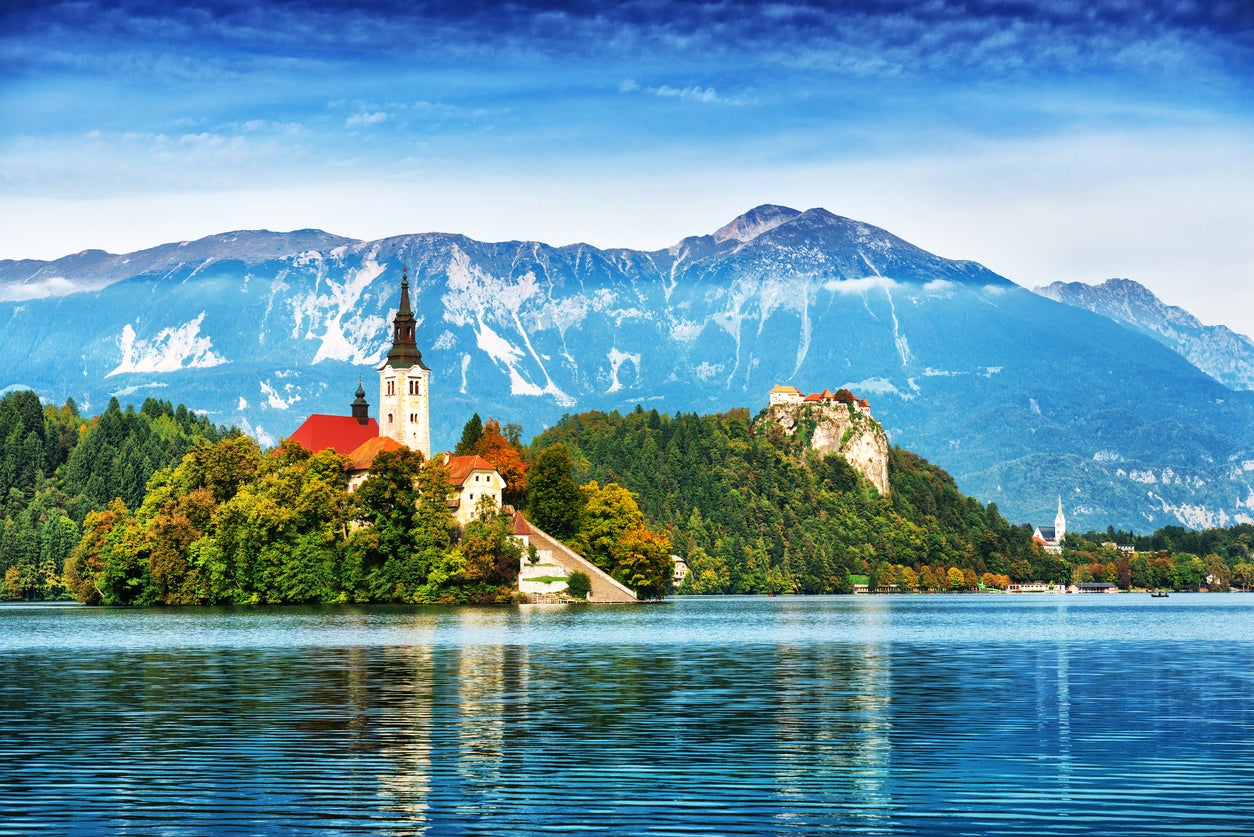
Norway
Norway was one of the first to axe all of its Covid restrictions in one fell swoop, back on 12 February. “From Saturday, 12 February 2022, you can travel to Norway without having to worry about anything more than having a good time!” the tourist board posted on its website. Post-Brexit, Britons do have to watch out for the current passport expiry rules - outlined here by Simon Calder - but they can visit countries such as Norway in the Schengen Area for up to 90 days in any 180-day period. From the beginning of 2023 or whenever the ETIAS scheme is up and running, Brits will require an ETIAS visa for Norway.
Iceland
Like Norway, Iceland was quick to drop the entirety of its Covid restrictions on 25 February in a bid to tempt back tourists. “All official epidemiological measures due to the Covid-19 pandemic will be lifted, both domestically and at the border,” the government said in a statement. “This eliminates all rules on restrictions on gatherings and schooling, as well as the requirement for isolation of those infected with Covid-19.” This means no tests or quarantine for anyone, vaccinated or unvaccinated.
Dominican Republic
The Caribbean nation of the Dominican Republic ended all Covid rules and mask mandates in mid-February. “It’s time to recover all our freedoms and way of life,” said president Luis Abinader at the time. Prior to the relaxation of rules, the island had retained strict mask wearing etiquette as well as using vaccine passports for certain venues.
Poland
One of the most recent to join this list, Poland scrapped all entry requirements on Monday, 28 March, following a decision to remove the mandatory mask rule on 23 March. Masks now are only required in hospitals and healthcare institutions. The country had previously been fairly strict, requiring proof of full vaccination and a pre-travel test. Now you can explore cities such as Warsaw and Krakov, test- and mask-free.
Montenegro
In mid-March, Montenegro removed its Covid-related entry requirements, ending the demand for proof of vaccination or a negative test result on arrival. While slightly under the radar, Croatia’s neighbour has been slowly building a profile as a travel destination these past few years, and with Croatia holding firm to its “vaccination or test” rule, as well as a passenger locator form, some tourists may be tempted here instead.
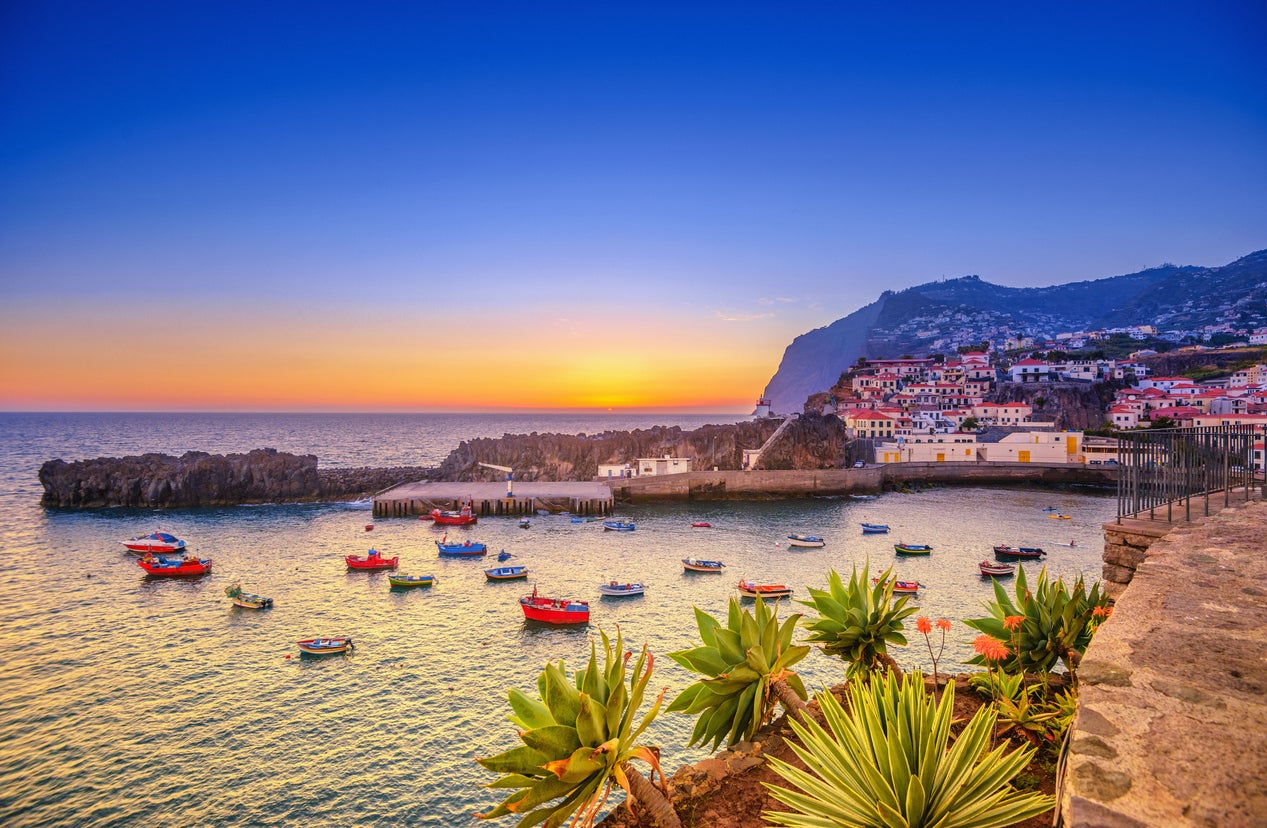
Hungary
As of 7 March, travellers have no longer needed to test, show proof of vaccination or quarantine when holidaying in Hungary. Gergely Gulyás, the prime minister’s chief of staff, announced the move at a government briefing. Like all EU countries, Britons need to watch out for passport expiry rules, making sure theirs is valid for at least three months after the day they plan to leave. Hungary is a great choice for spring, be it the foodie, trendy capital Budapest or further afield, before temperatures ramp up in summer.
Lithuania
Lithuania announced in late February that it would no longer require visitors from certain countries - including the UK, those within the EU and EEA - to provide proof of vaccination a test result or fill in a health form. This is regardless of vaccination status. However, Foreign Office advice states: “On 24 February 2022, Lithuania announced a State of Emergency, in response to Russian military action in Ukraine.” Read our recent guide to its pocket-sized capital, Vilnius.
Slovenia
Slovenia dropped all of its remaining travel restrictions at the end of February. “There are no longer any Covid-19 restrictions for entry to Slovenia,” read a statement from the tourist board. “The recovered/vaccinated/tested condition has been removed, making Slovenia an accessible, attractive destination for UK and Ireland travellers looking to experience incredible scenery, farm-to-fork cuisine, historic architecture, hiking trails, and much more.”

Romania
Increasingly popular with indie travellers and hikers prior to the pandemic, Romania lifted all remaining Covid restrictions on 9 March. This included the use of vaccine passports and the requirement to wear masks both indoors and outdoors. It coincided with the government’s decision not to extend a nationwide state of emergency that had been in place for almost two years. Read our recent guide to cool Transylvanian capital Cluj-Napoca.
Madeira
Madeira has been a hit with restriction-averse travellers throughout the pandemic, with spells of being one of the more relaxed destinations to visit in Europe. Since early March it has no longer required tests, proof of vaccination or isolation from either vaccinated or unvaccinated travellers - though some mask rules do remain on the ground. “There are no restrictions on the entry of travellers at the airports, ports and marinas of the Autonomous Region of Madeira,” said a statement from the Madeira Regional Tourism Board.
Sweden
This Scandi spring and summer break favourite dropped the remainder of its Covid rules on 1 April. Non-EU travellers now no longer need to show proof of vaccination or a test to visit the delights of Stockholm, Gothenberg and Malmö. “The government has decided not to extend the entry ban from third countries,” said minister for justice and home affairs, Morgan Johansson. “This will make it much easier for everyone who has been prevented from coming to Sweden in recent years due to the pandemic. It had earlier relaxed its restrictions for EU-based travellers only, on 9 February. As with all Schengen Area countries, check that your passport is still valid for three months after you leave and make sure it gets stamped on entry and exit.
Latvia
Also as of 1 April, travellers from the EU, European Economic Area (EEA) and the UK no longer need to show either proof of vaccination or a test result when entering Latvia. Travellers from outside of these areas do still need to show one of these (with children under 12 exempt). Latvia has also relaxed its mask rules in recent weeks, though masks “with a safety level of FFP2 - FFP3 or KN95” are still required in doctors’ surgeries, hospitals and other medical facilities, with a fine of 50 Euros attached to any rule breaking.
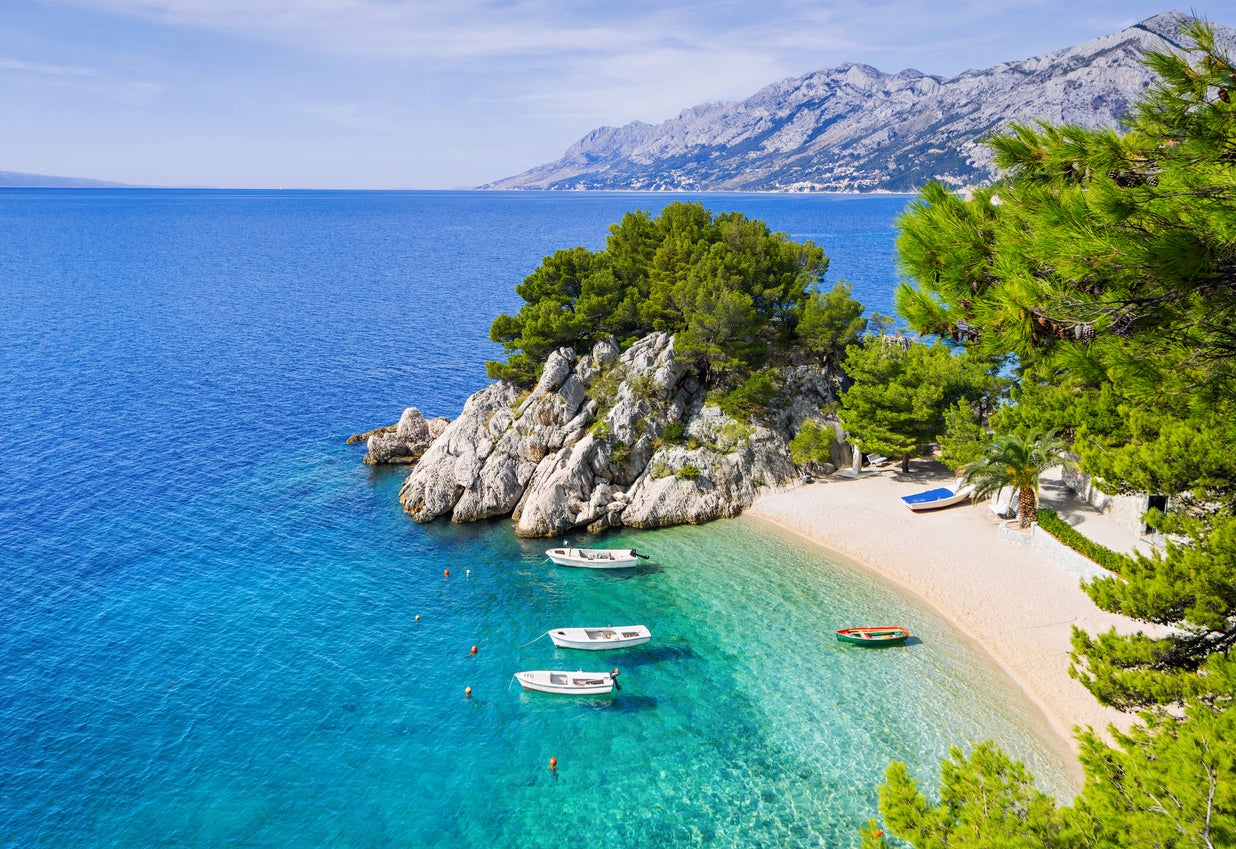
Moldova
Europe’s least-visited country - often forgotten outside of the Eurovision Song Contest - lifted its Covid restrictions on 16 March. No vaccine certificate, test or other documentation is required to enter the country. which has pretty monasteries, a great value capital in Chisinau, and a boutique wine scene. Not to mention European bison grazing around its rural hiking trails.
Czech Republic
Travellers to Prague and the wider Czech Republic no longer need to take a test or fill in a locator form, regardless of vaccination status. The country’s Ministry of Interior announced, “As of 9 April 2022, the protective measures regarding the conditions of entry into the Czech Republic in relation to the epidemic of Covid-19 have been suspended.” The capacity limits on venues such as museums has also been lifted, but the government continues to recommend the wearing of masks on public transport.
Jamaica
Jamaica lifted all of its Covid-related travel admin, including a pre-travel test, on 15 April. The Caribbean favourite’s remaining mask rules were scrapped on the same day. Minister of tourism for Jamaica, Edmund Bartlett, said: “We are optimistic that these simpler requirements will serve to increase the appeal of Jamaica as a premier destination and keep us moving along the road to a stronger recovery for both the tourism sector and the nation’s economy as a whole.”
Cuba
Cuba dropped all testing and vaccination proof requirements for visitors on 6 April. All travellers are still required to complete a health declaration (Declaracíon Jurada de Sanidad) online before travel. However, it’s worth noting that the country has said it will continue to carry out random PCR testing on arrivals at its international airports, with the risk that you may test positive and have to go into government quarantine facility for 14 days, at your own expense.
Croatia
Croatia did away with its remaining Covid rules on 1 May. Previously, holidaymakers had to show either proof of vaccination or a negative test results on arrival, as well as filling in a passenger locator form. But from May onwards, travel to the Dalmatian coast, pretty islands and beyond is pleasingly friction-free - as with all Schengen Area countries, do look out for the latest post-Brexit rules regarding length of stay and passport expiration dates.

Vietnam
In mid May, Vietnam became the first country in Asia to scrap all Covid-19 travel and entry guidelines for travellers arriving by air - regardless of vaccination status. These have now also been scrapped for arrivals by road, rail and sea. Holidaymakers arriving from the UK for up to 15 days can now arrange a visa waiver online, making sure their passport is valid for six months from their date of arrival. (Previously visitors had to take a pre-travel PCR test or quarantine on arrival.)
Israel
Israel dropped all of its remaining Covid travel rules - including proof of vaccination, pre-travel tests and quarantine - for all travellers on 21 May. This was an especially big change, as previously holidaymakers had to test before and after travel to the country. “This is the news we have been waiting for, for more than two years,” said Sharon Ehrlich Bershadsky, director of the Israel Government Tourist Office. “With Israel joining many other countries in dropping all Covid restrictions, I am hopeful the travel industry has now reached a crucial milestone in this post-pandemic world.”
Italy
Italy ended all border and entry requirements related to Covid on 1 June - this means that, regardless of vaccination status, you no longer have to show proof of vaccination or a test result at the border. The country’s assenger locator form had already been dropped a month prior, on 1 May. However, it has remained firm on the use of a specific type of face mask - FPP2 masks - on all public transport, and in hospitals and health care facilities.
Greece
Greece scrapped all entry and border requirements related to Covid on 1 May, following that up with and end to its mask requirement (in most settings) on 1 June. Holidaymakers to Greece no longer need to present either proof of vaccination or a negative test result on entry. You still need to wear a face mask on public transport and any health care facilities. The country had previously removed its use of vaccine passports for some indoor venues and events.
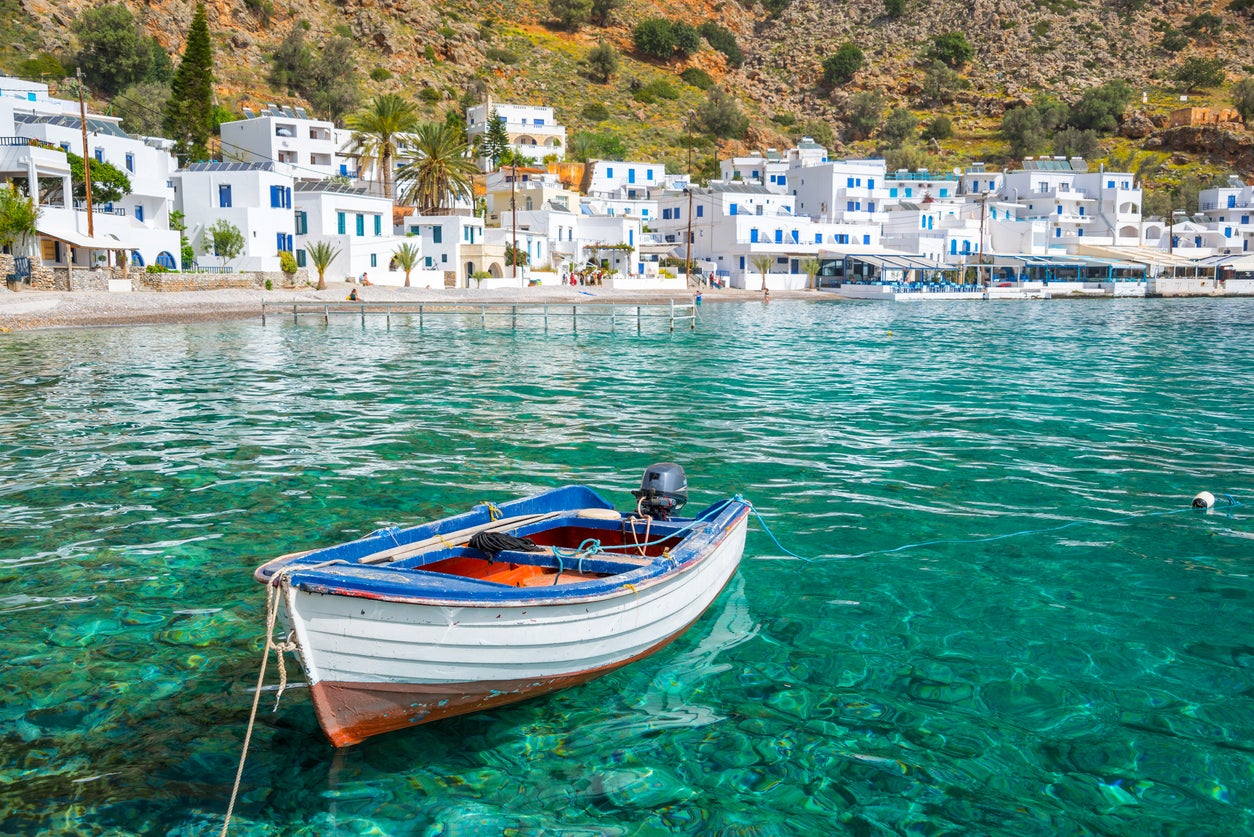
Cyprus
Cyprus removed its requirement to present proof of vaccination or a negative test result on 1 June. However, it tightened up mask rules once more in early July: visitors have to wear a face mask in indoor areas once more for the time being, and could face a €300 fine if ignored. The country had previously ended its use of passenger locator forms in April.
Turkey
One of the UK’s favourite budget holiday destinations, Turkey lifted all of its remaining Covid restrictions on 1 June. Passengers arriving in Turkey are no longer required to present proof of vaccination or negative PCR test results. Previously, fully vaccinated travellers could enter without needing to test or quarantine, but had to show proof of their vaccination status - while unvaccinated travellers had to show proof of a negative PCR test.
Armenia
Effective 1 May 2022, inbound travellers to the Asian country of Armenia - fomerly an emerging travel destination, along with Georgia - are no longer required to present a PCR test or a certificate of vaccination to enter. The country had previously lifted the majority of its remaining mask rules in March, with mask-wearing now only expected on public transport and in taxis.
Oman
This middle eastern adventure hotspot dropped all of its Covid restrictions, including proof of vaccination and the local mask mandate, on 22 May. The Foreign Office warns: “The Omani authorities have removed all Covid-19 restrictions. Your airline may have rules in addition to those set out by the Omani authorities (e.g. requiring you to provide a negative PCR test before boarding, wearing a mask etc).”

Germany
As of 11 June, Germany has lifted all Covid-related travel restrictions - “for the time being”, according to its tourist board. “ It is no longer necessary to present proof of vaccination, proof of recovery or a negative test result for entry to Germany,” confirms the Germany.info website. The German government has not clarified when this decision may be reviewed. Like Italy, FPP2 masks specifically are still required on public transport in Germany.
Estonia
Estonia ditched the remainder of its Covid travel restrictions on 16 June, for third-party countries such as the UK as well as EU countries. “The repeal of the order governing the crossing of the border will remove restrictions on third-country nationals arriving from outside the European Union, the European Economic Area, Switzerland, the United Kingdom, Andorra, Monaco, San Marino, and the Vatican,” said a statement from the government.
Egypt
The Foreign Office recently updated its travel advice for Egypt to reflect the end of the country’s Covid rules. Travellers no longer need to provide proof of vaccination status for entry or test on arrival in any part of the country (previously a requirement for Red Sea areas such as Hurghada). The change in rules was made effective from 20 June.
South Africa
South Africa ended all travel restrictions on 22 June. Holidaymakers and visitors no longer need to show proof of a Covid vaccination at the border, nor take any tests before travel or quarantine once in the country, regardless of vaccine status. Previously unvaccinated and partly vaccinated people aged 12 and over had to take a PCR or antigen test before their flight. Additionally, lingering restrictions on gathering sizes, and the requirement to wear a mask in crowded indoor settings and on public transport have been removed.
Finland
Finland announced earlier this month that it would scrap all remaining travel rules from Thursday 30 June. “Restrictions on entry at Finland’s external borders imposed due to the COVID-19 pandemic will end on 30 June, 2022,” read an update to the Visit Finland website. “This means that EU travellers, Schengen travellers and third-country travellers arriving in Finland will no longer be required to hold vaccination or Covid-19 test certificates, and Covid-19 tests will not be carried out at border crossing points.” Previously only fully vaccinated travellers could visit without a good reason, and had to show proof of vaccination on entry.
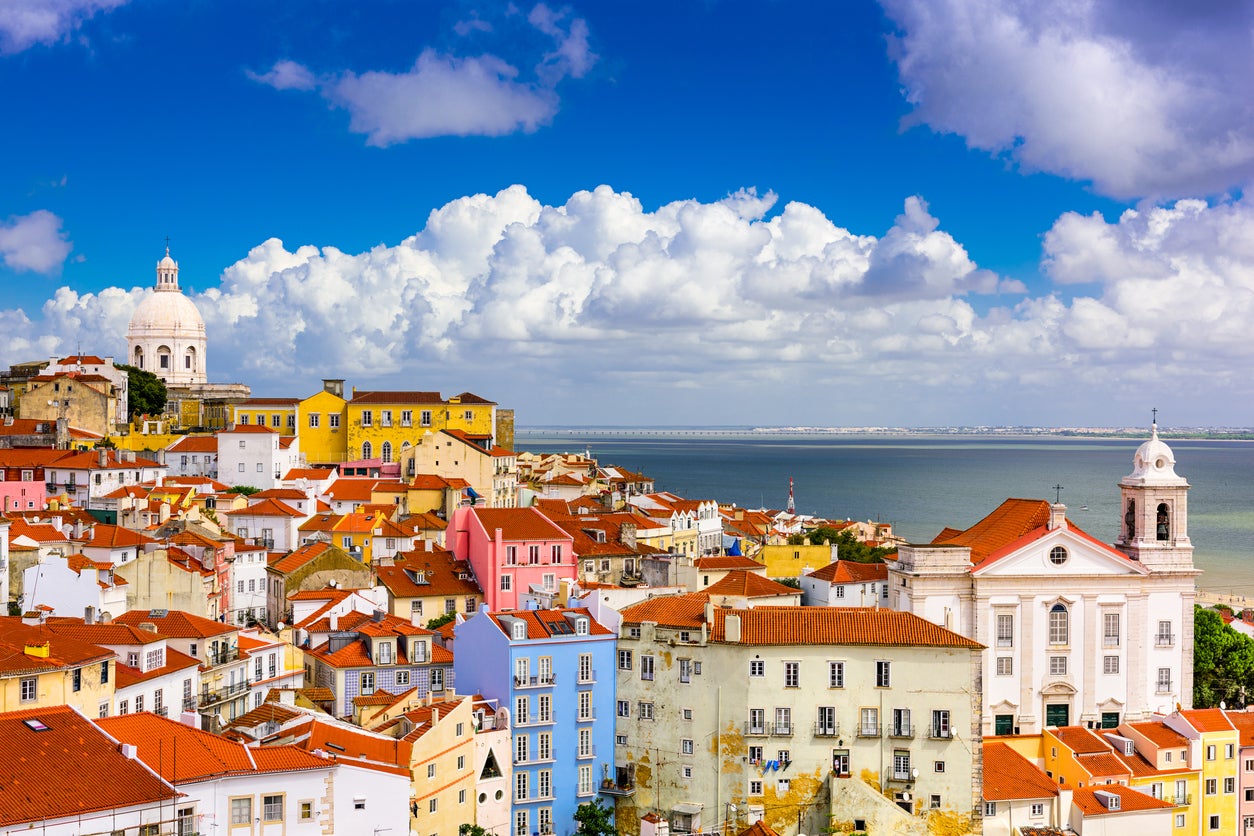
Mauritius
The Indian Ocean island of Mauritius will end all remaining Covid travel requirements from 1 July, including testing on arrival for all visitors. Previously, both vaccinated and unvaccinated holidaymakers had to undergo a Covid-19 test on arrival to the island, while unvaccinated visitors had to self-isolate for seven days in their hotel before taking a second test to be released. From 1 July onwards, visitors to Mauritius can arrive friction-free, with no need to show proof of vaccination, take a test or quarantine - though passports should still be valid until at least the date you plan to leave.
Portugal
Portugal joined many European countries in dropping its Covid entry rules on 1 July. Britons can now visit the mainland, the island of Madeira and the autonomous Azores islands without having to show proof of vaccination, test or quarantine, regardless of vaccination status.
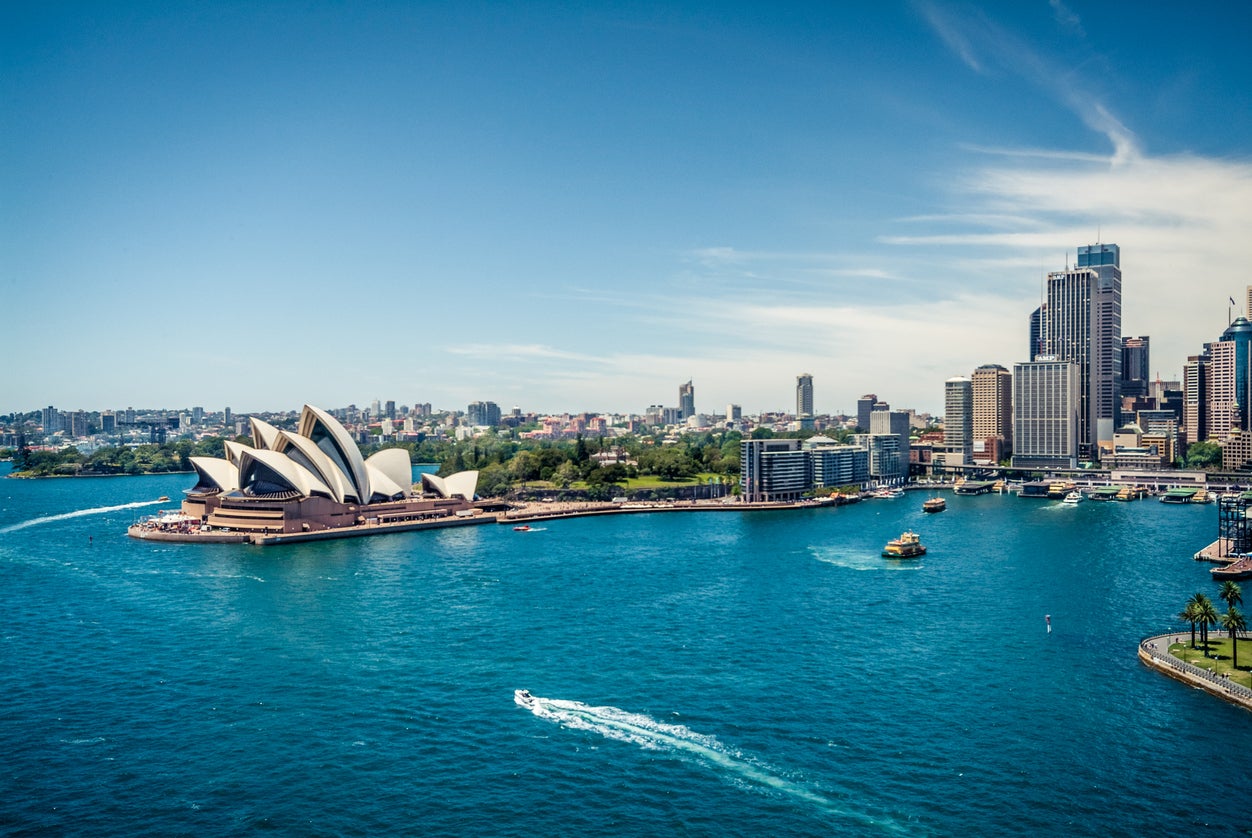
Australia
Just 19 weeks after initially reopening to foreign tourists, Australia dropped its remaining Covid requirements on 6 July. In early July, the government in Canberra announced: “People travelling to Australia will no longer have to complete a Digital Passenger Declaration (DPD) to declare their Covid-19 vaccination status.” The end of the requirement to show proof of vaccination effectively ends the ban on unvaccinated visitors, as well as making entry easier for vaccinated travellers - but airline Qantas still insists its passengers be vaccinated in order to fly with them.
Malta
On 25 July, all entry requirements relating to Covid in Malta were axed. Previously, vaccinated travellers had to show proof of being fully jabbed, while unvaccinated arrivals had to show proof of recovery or a negative PCR or antigen test taken no more than 72 hours or 24 hours prior to travel respectively. However, restriction-free entry is now available for all arrivals. The Visit Malta website states: “As from 25 July, people travelling to Malta without a vaccine certificate or a recovery certificate do not need to present a negative PCR/rapid test before arriving in Malta.”
France
France ended its long-running Covid rules on 1 August, scrapping both Covid regulations on the ground and at the border. As such, travellers no longer need to show proof of vaccination, recovery, or a negative test result to enter France, regardless of vaccination status. However, France’s government has reserved the right to reintroduce these rules as an “emergency handbrake” measure if Covid cases rise again.
Malaysia
This southeast Asian hub ended all remaining Covid restrictions on 1 August, including testing and quarantine requirements. Previously, unvaccinated travellers had to take a PCR test before their journey to Malaysia, plus an antigen test shortly after arrival. In terms of a passenger locator form, the Foreign Office update clarifies: “You may still be requested to download the MySejahtera app [before travel] but are no longer required to fill in the travel pass to verify your vaccine status.”
St Helena
The British Overseas Territory of St Helena, which previously demanded seven days’ quarantine from arrivals, ended all Covid requirements for visitors on 10 August. The remote island is a six-hour flight from Johannesburg, South Africa, and will see flight links increase from October 2022 onwards. Mask wearing may still be required in some settings.
St Kitts and Nevis
The Caribbean nation of St Kitts and Nevis dropped all remaining pandemic-related rules on 15 August. Previously, vaccinated visitors had to show proof of vaccination, while unvaccinated visitors were barred entirely. The Tourism Authority said: “All unvaccinated and vaccinated travellers are permitted to enter the Federation of St Kitts and Nevis. This includes citizens, residents and international travellers. Travellers are required to complete and submit an online customs and immigration form before arrival.”
Antigua and Barbuda
The relaxation of Covid rules has now spread across much of the Caribbean region, with the twin islands of Antigua and Barbuda the latest to end their restrictions on 26 August. Travellers arriving by air no longer need to provide proof of vaccination or a negative test result.But those arriving on cruises remain subject to any rules imposed by the operating companies. The government of Antigua and Barbuda said in a statement that the wearing of face masks and social distancing in public places such as ports, supermarkets, bar and clubs is “actively encouraged” but not compulsory.
Join our commenting forum
Join thought-provoking conversations, follow other Independent readers and see their replies
Comments
Bookmark popover
Removed from bookmarks